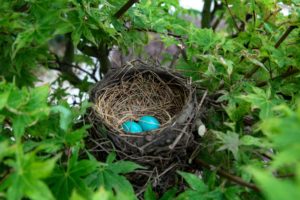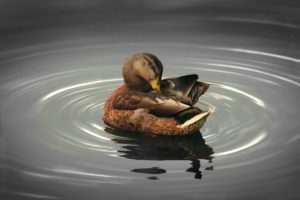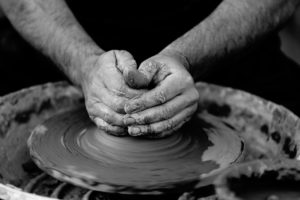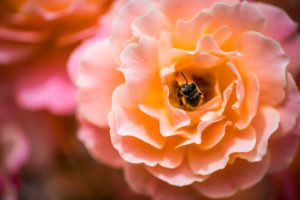This summer is about resource. I’ve never picked a one-word summer intention before, but today I realize it’s been thrust upon me, willy-nilly. The Summer of Resource.

I’ve been working with the idea of minimalism, which forces one to take stock of resource in the wide sense. What is resource? Oxford online dictionary defines resource as “a stock or supply of … assets that can be drawn on by a person … in order to function effectively.”
When I think about resource, it’s a jigsaw puzzle, and like a jigsaw puzzle, every piece counts if one wants to end up with the whole picture. When I hear the word “assets,” money is the first thing that comes to mind. Then there are external natural resources, which are also closely tied to money and more finite every minute.
In a capitalist economy, that’s as far as most people explore resource. What’s the bottom financial line? What’s the cost versus benefit projection? What’s the tax picture? How expensive is firewood, oil, electricity and food? What is the interest rate? How affordable is housing?

Sadly, this is a short-sighted and nonsustainable view of resource. It’s also incomplete, because it doesn’t include intangibles that can’t be quantified in terms of monetary value, and so become invisible. These include space, time, creativity, soulfulness, heartfulness, love and compassion. Also, more subtly, faith, patience, playfulness, innocence and integrity, some of which qualities are targets of active contempt in this culture.
How do we quantify the resource of a life, any kind of a life?
Pick a closet in your house. Open the door. What’s the square footage of that space resource? What’s in the closet? Any item you don’t want and/or don’t use is not a resource. It’s just junk clogging up you space. “It’s mine,” “I’ve had it all my life,” “I paid a lot of money for this,” “my favorite aunt gave it to me” and “some day I might need it” are not indicators of resource. A resource helps us function effectively, remember? Any item we don’t use but hang onto anyway isn’t helping us function effectively. Our shoe collection, baseball card collection or belly button lint collection might temporarily give us pleasure, bolster our self-esteem, distract us or even be a financial investment (probably not the belly button lint, but remember Pet Rocks?), but our collections frequently cost money to acquire and demand space, time and management. They own us as much as we own them.
Even money, inappropriately managed, becomes an ineffective resource.
We are constantly assaulted by sophisticated marketing persuading us to buy products that will make our lives better. Most of us know intellectually we’re being manipulated, but the lure is irresistible. We’re so hungry for love, for healthy relationships, for comfort, for distraction, for beauty. It’s an empty promise, though. We buy, but we’re still hungry, so we buy more, like the good little brainwashed consumers we’ve become.
Many folks here in Maine harvest wood off their land in exchange for financial resource. Some harvest sustainably, but most clear cut. People sell what resource they can in order to stay afloat financially. I understand. I’ve done it, too. That destroyed forest, however, is — was — a natural resource of unimaginable complexity on a finite and increasingly depleted planet. Systems scientists are only now beginning to glimpse the intricate interconnections between life on Earth — all life on Earth, not just human life.

Life is resource.
Clear cutting a few acres of wood might help us face the immediate necessity to buy firewood this summer and heating oil over the winter. We can quantify those costs. We can’t quantify what the loss of those few acres are in terms of healthy land, water, air, and the innumerable forms of life destroyed with the trees. We don’t know exactly how the destruction of a few acres here in central Maine contributes to cumulative global breakdown and change, because we’re not aware of all the complexities of our dynamic living global system. It’s too big to think about, too far away. Many of us are simply trying to survive another day or week or month in the long spaces between paychecks. We’re far too overwhelmed and desperate to try to grapple with the whole picture. After all, if we can’t get through today there is no tomorrow.
What will the last tree be worth in dollars? In possibility? In beauty?
I can’t think about resource without thinking about sustainability. Working 60-hour weeks might provide comfortable financial resource, but it’s not sustainable. Using up money, time, space, patience, and even things like hope faster than we create or save them means we’ll run out, and when we run out of resource our lives stop functioning effectively — fast. Then we’re forced to shape a new life, whether we’re prepared to or not.
Renewable resources need time to renew. Few of us feel as though we have enough time, and what time we do have is sucked up in earning money, dealing with the consequences of how we manage it, and relationships. It’s possible to set aside time for self-care and creativity, but it requires discipline and boundaries. It’s possible to grow food and harvest natural resources sustainably, but not as long as we value money over all other resource and our population continues to be in overshoot.

Like everyone else, I have needs and limited resource available to help meet them, but if my life is too cluttered, noisy and/or busy, I lose track of both my needs and my resource. I forget I’m more than my ability to pay the bills, more than the numbers in my bank accounts. The practice of minimizing helps me remember to appreciate and protect all my resource, and make clear choices about sustaining and strengthening what I have so it supports who I am.
Minimalism encourages a kind of inside-out thinking. Not “I need a bigger house,” but “I need less stuff in this house.” Not “I need more money,” but “I want to spend less money.” Not “I need more time,” but “I want to do less with the time I have.”
Less, not more. The goal is to have what we need, but not more than we need.
What investments will truly increase my resource, financial, emotional, creative and intellectual? Only I can say. I’m the only expert on my own needs. I’m the only one who can identify the unrecognized or poorly managed resource in my life and implement different choices. No advertisement, expert, tweet, social media post or self-help book knows more about me than I do myself, and none can make choices for me. It’s all on me.
Rats.
It will be an interesting summer. I’m letting go of objects, some in exchange for money. I’m liquidating a financial asset to pay debts and invest in my ability to spend less. I’m investing time, energy, faith and hope in my creative work.
I think about effective living all the time. What, exactly, do I need to have and do to live effectively, and what do I have and do that are not helping me achieve that goal? What does “effective” mean to me? What does my particular expression of being require to thrive? What are my total resources, and how renewable or sustainable are they? How can they best be invested in order to create more?
The Summer of Resource.

© 2019 – 2022, Jenny Rose. All rights reserved.
I was impressed with this article. It makes one think and re-think about they way we live and what we require to he happy, or think we require. Very good Jenny!
Thank you, Dawn. That’s the best compliment you could have given me, that it made you think!